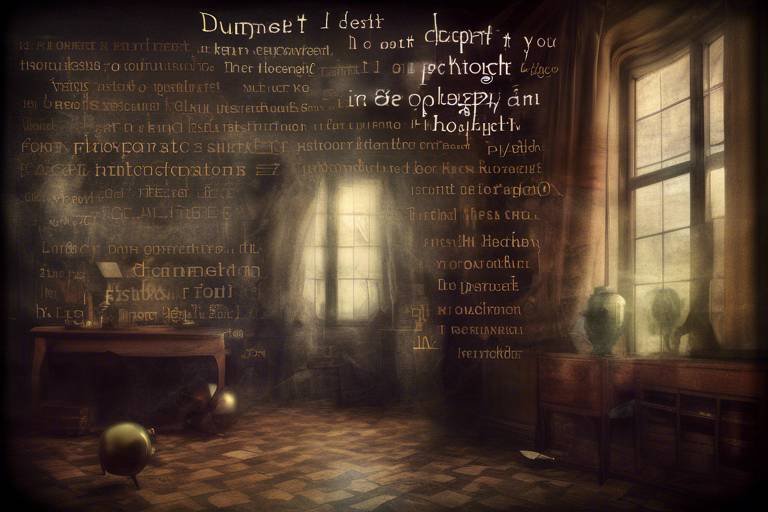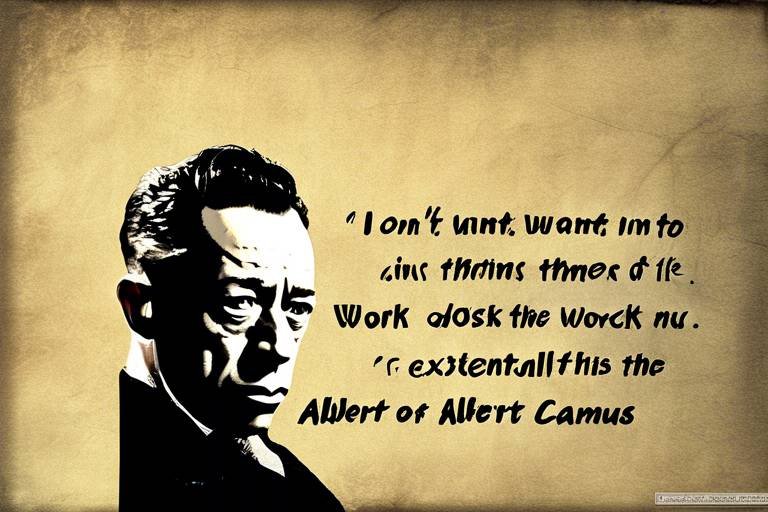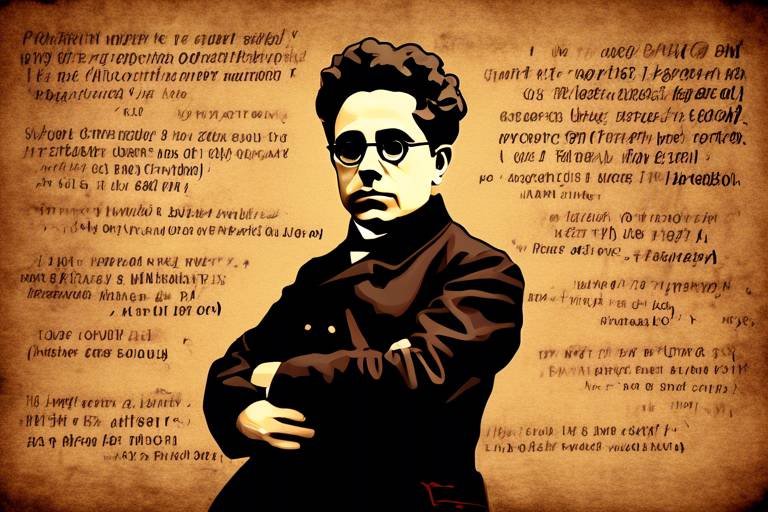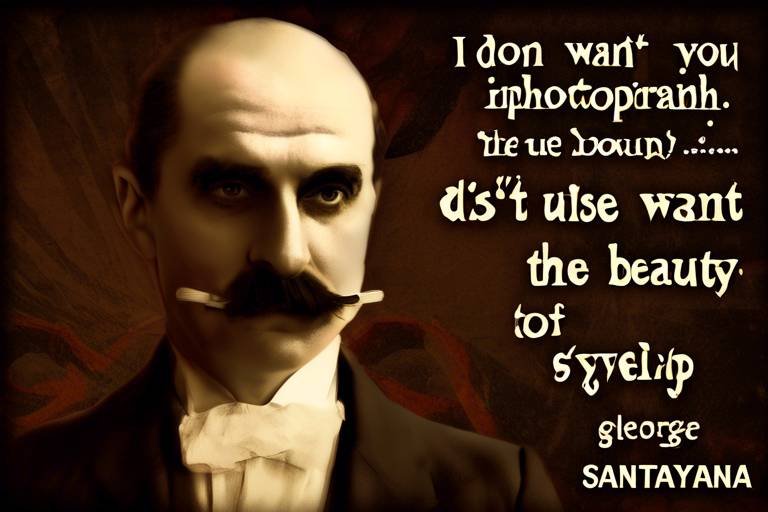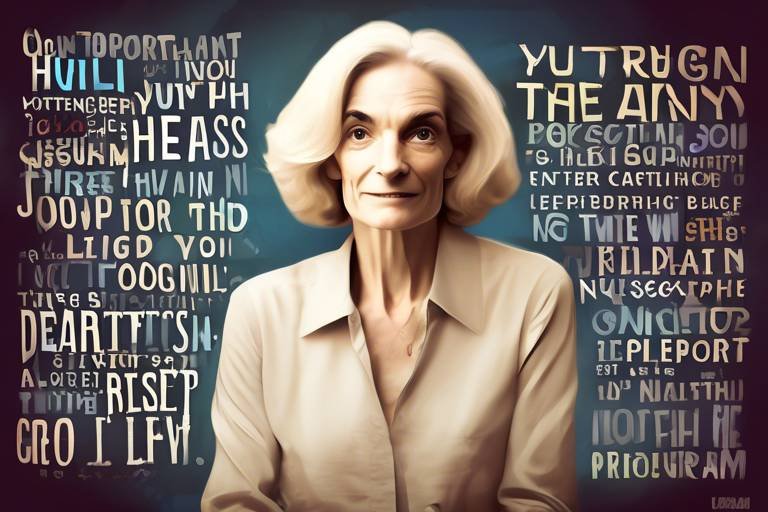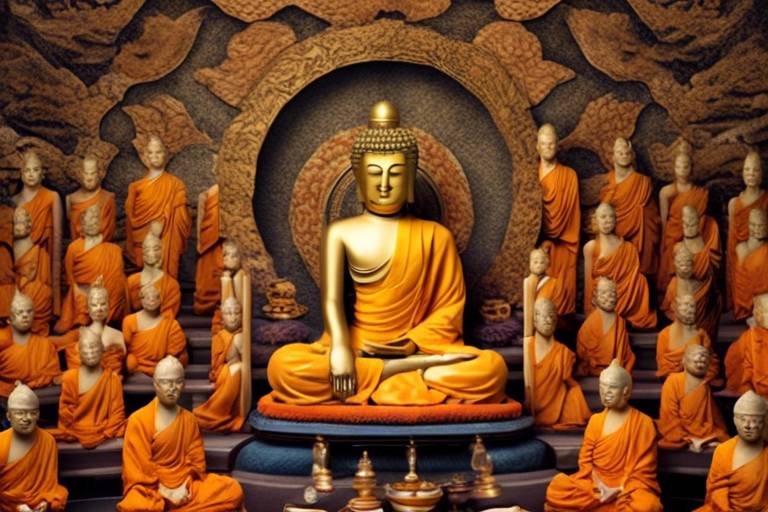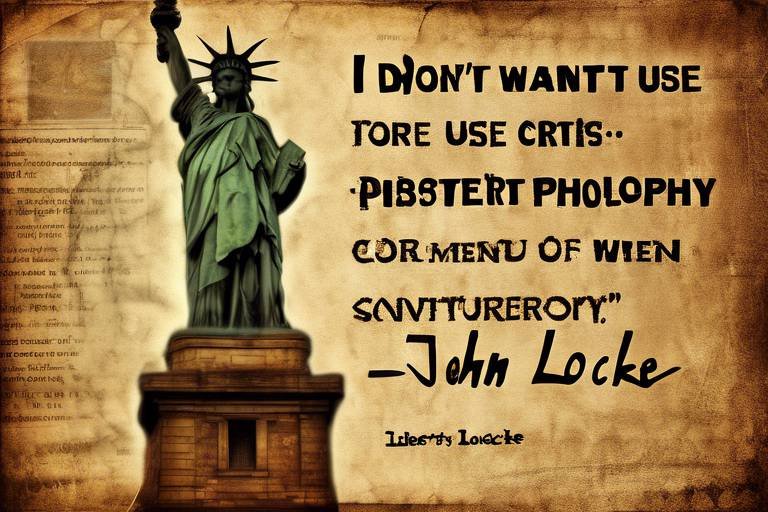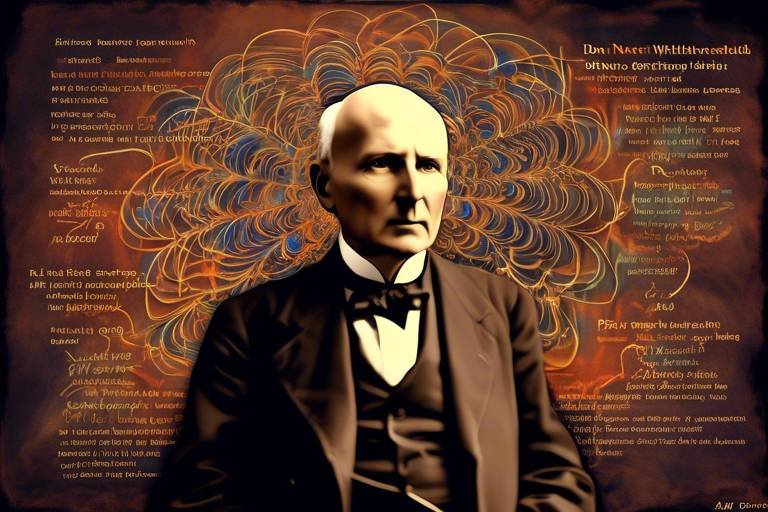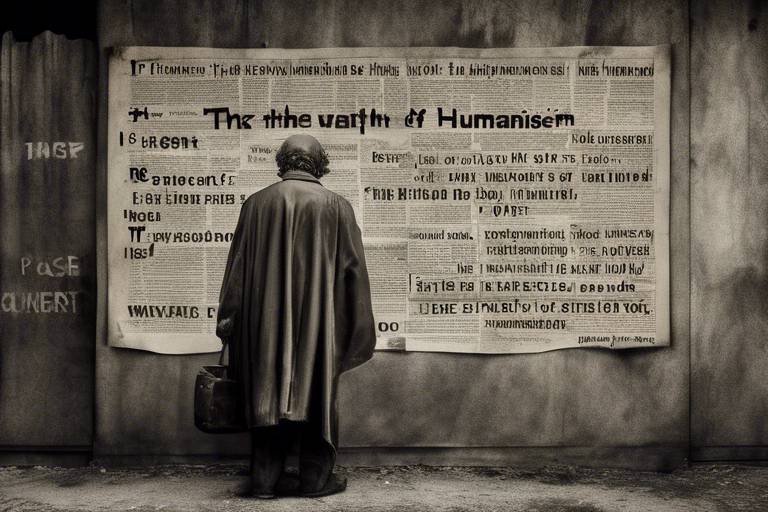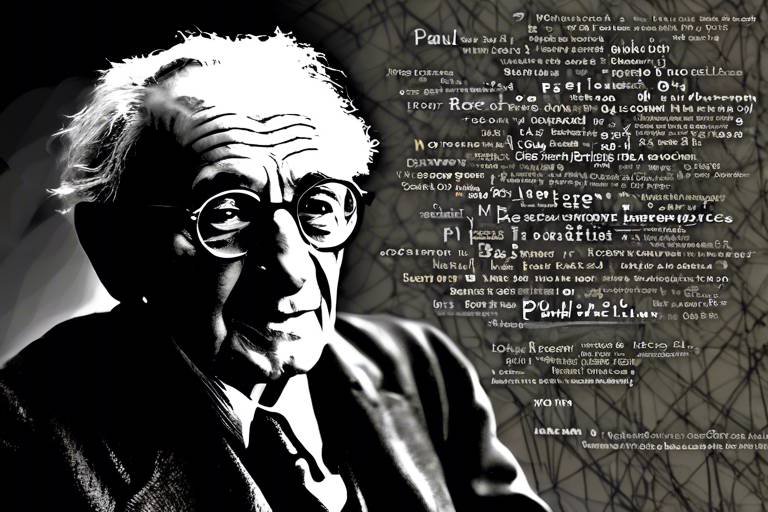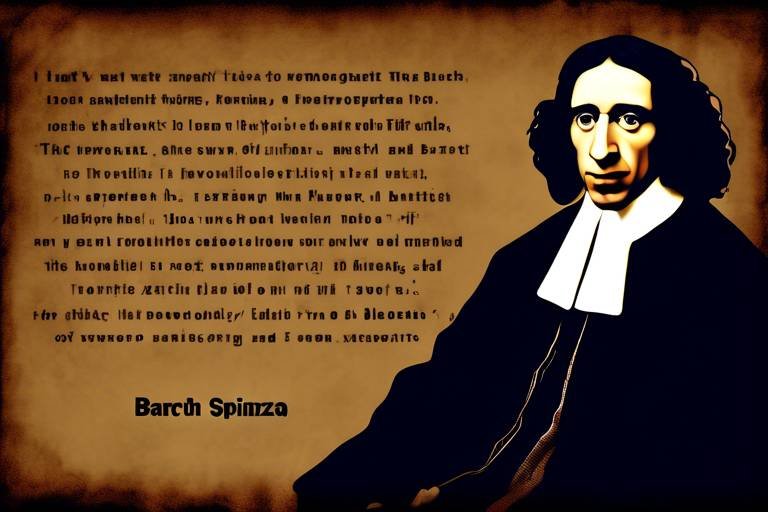Michel Foucault - Philosophy or History?
When we dive into the works of Michel Foucault, we find ourselves navigating a complex labyrinth of ideas that intertwine philosophy and history in ways that are both enlightening and perplexing. Foucault, a towering figure in contemporary thought, challenges us to reconsider the very foundations of how we understand power, knowledge, and the intricate webs of social structures that govern our lives. But is he a philosopher, a historian, or perhaps a bit of both? This question is not merely academic; it invites us to explore the nuances of his theories and the historical contexts that birthed them. In this article, we will unravel this intricate tapestry, examining how Foucault's philosophical inquiries are deeply rooted in historical realities, yet simultaneously push the boundaries of traditional philosophical thought.
Foucault's work prompts us to ask: how do the historical events and cultural shifts of his time inform his philosophical ideas? His analysis of power dynamics, for instance, cannot be divorced from the socio-political landscapes of the 20th century. As we traverse through his key concepts, we will uncover how his theories not only reflect historical realities but also challenge and redefine them. This interplay between philosophy and history is what makes Foucault’s contributions so vital in our understanding of contemporary issues. Are we, as individuals, merely products of our historical contexts, or do we have the agency to redefine the narratives that shape us?
To better grasp the essence of Foucault's thought, we must consider the profound implications of his ideas on disciplinary power and biopower. These concepts reveal how societal norms and institutional frameworks exert control over individuals, shaping our identities and behaviors in ways we often take for granted. Foucault’s exploration of discourse further complicates this relationship, suggesting that our understanding of reality is constructed through language and societal interactions. This realization can be both liberating and daunting, as it forces us to confront the ways in which our identities are molded by external forces.
In essence, Foucault's work serves as a bridge between philosophy and history, inviting us to engage with the past while questioning the present. As we delve deeper into his theories, we will uncover the layers of meaning that reveal how historical contexts inform philosophical discourse and vice versa. The journey through Foucault's thought is not just an academic pursuit; it's a profound exploration of what it means to be human in a world defined by power, knowledge, and the relentless flow of history.
- Who was Michel Foucault? Michel Foucault was a French philosopher and historian known for his critical studies of various social institutions, including psychiatry, medicine, and the penal system.
- What are Foucault's main philosophical concepts? Foucault's key concepts include power, knowledge, discourse, disciplinary power, and biopower, which collectively challenge traditional views of philosophy and history.
- How does Foucault connect philosophy with history? Foucault's work demonstrates that philosophical ideas are deeply rooted in historical contexts, and understanding one requires an exploration of the other.
- What is the significance of Foucault's ideas today? Foucault’s theories continue to influence contemporary debates on power dynamics, social structures, and the role of institutions in shaping individual identities.

The Life of Michel Foucault
Michel Foucault, a towering figure in the realms of philosophy and social theory, was born on October 15, 1926, in Poitiers, France. His early life was marked by a blend of intellectual rigor and personal challenges that shaped his unique worldview. Foucault's education began at the Lycée Henri-IV in Paris, where he excelled in philosophy and literature. He later attended the prestigious École Normale Supérieure, immersing himself in the works of influential thinkers like Friedrich Nietzsche and Karl Marx, which would profoundly impact his own theories.
Throughout his life, Foucault faced various personal struggles, including bouts of depression and a complex relationship with his identity. These experiences fueled his interest in the human condition and the mechanisms of power that govern societal structures. His time spent in the mental health system, both as a scholar and a patient, led him to develop a critical perspective on how institutions shape individual lives.
Foucault's academic career began in the 1950s, during which he held several teaching positions across France. His first major work, "Madness and Civilization," published in 1961, explored the historical treatment of the mentally ill and laid the groundwork for his later inquiries into the nature of power and knowledge. This book, along with his subsequent works, established him as a leading voice in contemporary philosophy.
Over the decades, Foucault's ideas evolved, reflecting the changing political and social landscapes of the time. His engagement with various intellectual movements, such as structuralism and postmodernism, allowed him to challenge established norms and provoke critical thought. Foucault's works, including "The Birth of the Clinic," "Discipline and Punish," and "The History of Sexuality," interrogated the relationships between power, knowledge, and social institutions, fundamentally altering how we view history and philosophy.
Foucault's life was not just about academic pursuits; he was also an active participant in political movements. His commitment to social justice and human rights led him to engage with various causes, including the rights of prisoners and the LGBTQ+ community. This activism was an extension of his philosophical inquiries, as he sought to understand how power operates within society.
In the latter part of his life, Foucault's focus shifted towards the concepts of ethics and the self. He explored how individuals can navigate the complexities of power and societal expectations to create their own identities. This culminated in his later works, where he emphasized the importance of personal agency and the role of ethics in shaping human experience.
Foucault's untimely death from AIDS-related complications on June 25, 1984, left a profound impact on contemporary thought. His ideas continue to resonate across various disciplines, from sociology to cultural studies, prompting ongoing discussions about the nature of power, knowledge, and identity. To this day, Foucault's legacy endures, challenging us to reconsider the structures that govern our lives and the historical narratives that shape our understanding of the world.
- What are some of Foucault's most influential works?
Some of Foucault's most notable works include Madness and Civilization, Discipline and Punish, and The History of Sexuality. Each of these texts explores different facets of power, knowledge, and societal structures.
- How did Foucault's personal experiences influence his philosophy?
Foucault's struggles with mental health and his experiences within the mental health system deeply influenced his understanding of power dynamics, particularly in how institutions can shape individual identities.
- What is the significance of Foucault's concept of biopower?
Biopower refers to the ways in which states regulate populations through various means, including health and sexuality. This concept highlights the intersection of power and individual lives, emphasizing how societal norms can dictate personal choices.

Foucault's Key Philosophical Concepts
Michel Foucault's work is a labyrinth of ideas that intertwine philosophy and history, challenging us to rethink the very foundations of how we understand power, knowledge, and social structures. His theories serve as a lens through which we can examine the complexities of modern society. Foucault's key concepts are not merely academic musings; they are profound insights that resonate with our everyday experiences. Let's dive into these concepts, starting with the intricate relationship between power and knowledge.
Foucault famously argued that power and knowledge are not separate entities but are deeply intertwined. This relationship suggests that knowledge is not just about truth but also about control. When we acquire knowledge, we also gain a certain level of power over others. For instance, consider how educational institutions shape our understanding of what is deemed "normal" or "acceptable." The knowledge disseminated within these institutions often reinforces societal hierarchies, subtly guiding individuals to conform to established norms.
To illustrate this point further, let's look at a few examples:
- Medical Knowledge: The medical field not only treats individuals but also defines what constitutes health and illness, thereby exerting power over our bodies.
- Legal Systems: Laws are based on societal knowledge, influencing behaviors and maintaining order, but they can also perpetuate injustices.
- Media Representation: The portrayal of certain groups in the media shapes public perception, impacting social dynamics and power relations.
This intricate dance between power and knowledge reshapes our understanding of authority, suggesting that those who control knowledge ultimately shape society.
Foucault's notion of disciplinary power is particularly fascinating. He posits that modern societies exert control not just through overt coercion but through subtle means of normalization. Disciplinary power operates through institutions such as schools, prisons, and hospitals, which regulate behavior by establishing norms. For example, in schools, students are constantly monitored and assessed, leading them to internalize expectations and conform to societal standards.
This form of power is insidious; it doesn't just dictate what we do but influences how we think about ourselves. The norms established by these institutions shape our identities, often leading us to self-discipline and compliance without the need for force. It's like a game of chess where each move is calculated, and players are conditioned to act in ways that align with the rules of the game.
Another critical concept introduced by Foucault is biopower, which refers to the ways in which states regulate populations through various means. This includes not only laws but also policies related to health, sexuality, and reproduction. Biopower is about managing life itself—how populations are born, live, and die. For example, consider how public health campaigns aim to control diseases through vaccination or how governments might regulate reproductive rights.
Foucault's exploration of biopower invites us to reflect on the ethical implications of state control over individual lives. It raises questions about freedom and autonomy: to what extent should a government intervene in personal choices for the sake of public good? This tension between individual rights and collective responsibility is a significant theme in contemporary debates around health and social policy.
Finally, we cannot overlook Foucault's exploration of discourse and its role in shaping subjectivity. Discourse refers to the ways in which language and communication construct our understanding of reality. Foucault argues that our identities are not inherent but are formed through the discourses we engage with. For instance, the way we talk about mental health can influence how individuals perceive themselves and their experiences.
This concept challenges the idea of a fixed self, suggesting instead that our identities are fluid and shaped by external narratives. It's akin to being an actor in a play, where the script—crafted by society—guides our performance. By examining the discourses that surround us, we can uncover the underlying assumptions and power dynamics that shape our lives.
In summary, Foucault's key philosophical concepts invite us to rethink our understanding of power, knowledge, and identity. His insights challenge traditional views and encourage us to critically examine the social structures that govern our lives. As we navigate the complexities of contemporary society, Foucault's work remains profoundly relevant, urging us to question the norms and discourses that shape our existence.
- What is Michel Foucault best known for?
Foucault is best known for his theories on power, knowledge, and discourse, which challenge traditional understandings of philosophy and history. - How did Foucault influence modern thought?
His ideas on disciplinary power and biopower have reshaped discussions around identity, authority, and societal norms. - What is the significance of the relationship between power and knowledge?
This relationship suggests that knowledge is a form of power that shapes societal structures and individual behavior.

Power and Knowledge
When we dive into the intricate world of Michel Foucault, one of the most striking revelations is how he intertwines the concepts of power and knowledge. Imagine a dance where each partner influences the other's movements; that’s essentially what Foucault is illustrating. Knowledge isn’t just a collection of facts; it’s a powerful tool that shapes societal structures and individual behavior. This relationship challenges traditional views where knowledge is seen merely as an objective truth, separate from the influences of power. Instead, Foucault argues that knowledge is created and sustained through power dynamics, making it inherently subjective and contextual.
Foucault's famous assertion that “knowledge is power” encapsulates this idea perfectly. It suggests that the way we understand and interpret the world around us is deeply influenced by the power structures that exist within society. For instance, think about how different narratives are constructed around historical events. These narratives are not just stories; they are shaped by those in power who determine which facts are emphasized, which are omitted, and how they are framed. This is where the concept of discursive formations comes into play. Foucault posits that knowledge is produced within specific discourses, which are governed by the rules and norms of the time.
To further illustrate this, let’s consider a few key points about power and knowledge:
- Knowledge as a Social Construct: Foucault emphasizes that what we consider to be 'truth' is often a product of social constructs rather than an absolute reality.
- Surveillance and Control: He argues that modern societies employ surveillance mechanisms that not only monitor behavior but also produce knowledge about individuals, thereby exerting power over them.
- Resistance: Interestingly, Foucault points out that where there is power, there is also resistance. Knowledge can empower individuals to challenge and subvert existing power structures.
This intricate dance of power and knowledge is particularly evident in institutions such as schools, prisons, and hospitals. These institutions do not merely function as places of learning, punishment, or healing; they are also sites where knowledge is produced and disseminated, reinforcing societal norms and expectations. For example, the education system often reflects and reproduces the values of the dominant culture, shaping individuals' identities and perceptions of themselves in relation to society.
So, the next time you hear someone say that knowledge is power, remember that it’s more than just a catchy phrase. It’s a profound insight into how we navigate our world. Foucault invites us to question the very foundations of what we know and how we come to know it. Are we merely passive recipients of knowledge, or are we active participants in its creation? This perspective not only reshapes our understanding of authority but also empowers us to critically engage with the information we consume.
Q1: What does Foucault mean by "knowledge is power"?
A1: Foucault suggests that knowledge is not neutral; it is influenced by power dynamics and can be used to control and shape society. Knowledge production is intertwined with the exercise of power.
Q2: How does Foucault's concept of power differ from traditional views?
A2: Traditional views often see power as something that is held by individuals or institutions. Foucault, however, views power as relational and pervasive, existing in various forms throughout society, embedded in everyday practices and discourses.
Q3: Can knowledge lead to resistance against power?
A3: Yes! Foucault argues that where there is power, there is also resistance. Knowledge can empower individuals to challenge and disrupt existing power structures.

Disciplinary Power
When we dive into the concept of as articulated by Michel Foucault, we enter a realm where control is less about overt force and more about subtle, pervasive influence. Imagine a finely woven net that captures not just the actions of individuals but also their thoughts and desires. This idea revolutionizes our understanding of how power operates in society. Instead of relying solely on institutions like prisons or the military, Foucault argues that power is embedded in everyday practices and societal norms.
Disciplinary power is fundamentally about regulation and normalization. It shapes behaviors and expectations through various means, including education, healthcare, and even the workplace. Think about it: when you think of discipline, what comes to mind? Perhaps it’s the strict rules in a school or the rigorous standards in a corporate environment. These are not just isolated systems; they are part of a larger framework that Foucault describes as a panopticism, where the possibility of surveillance creates a self-regulating individual.
Foucault illustrates this concept with the metaphor of the Panopticon, a prison design proposed by Jeremy Bentham. In this structure, a single guard can observe all inmates without them knowing whether they are being watched. This uncertainty compels prisoners to regulate their own behavior. Foucault uses this metaphor to highlight how modern societies function similarly, where individuals internalize societal norms and expectations, leading to self-discipline. The implications are profound:
- Individuals become both the subject and object of power.
- Society perpetuates norms that dictate acceptable behavior.
- Resistance becomes more complex as individuals are conditioned to conform.
Moreover, disciplinary power extends beyond mere surveillance; it encompasses the entire spectrum of social institutions. Schools, hospitals, and even family dynamics play a role in shaping individuals. For example, consider how schools enforce discipline through grading systems, attendance policies, and behavioral expectations. These mechanisms not only impart knowledge but also instill a sense of order and compliance in students, preparing them for their roles in society.
Foucault's analysis of disciplinary power also raises crucial questions about freedom and autonomy. Are we truly free if our thoughts and actions are heavily influenced by societal norms? This paradox is central to Foucault's work, as he urges us to recognize the subtle ways in which power operates in our lives. The challenge lies in understanding that while we may feel free, we are often navigating within the confines of a system designed to control and regulate.
In essence, disciplinary power is a key component of Foucault's broader critique of modernity. It invites us to reconsider the nature of authority and the ways in which we are governed. By recognizing the pervasive influence of disciplinary mechanisms, we can begin to question and potentially resist the forces that shape our identities and behaviors. In doing so, we engage in a critical dialogue about power, knowledge, and the very structures that define our existence.
- What is disciplinary power? Disciplinary power refers to the subtle ways in which societies regulate individuals through norms, institutions, and practices rather than through overt coercion.
- How does Foucault's concept of the Panopticon relate to modern society? The Panopticon serves as a metaphor for how surveillance creates self-regulating individuals, where the possibility of being watched influences behavior.
- What are some examples of disciplinary power in everyday life? Examples include the rules and regulations in schools, workplace policies, and societal expectations regarding behavior and conduct.
- How does disciplinary power affect individual autonomy? Disciplinary power complicates the notion of freedom, as individuals often conform to societal norms, limiting their autonomy and authentic expression.
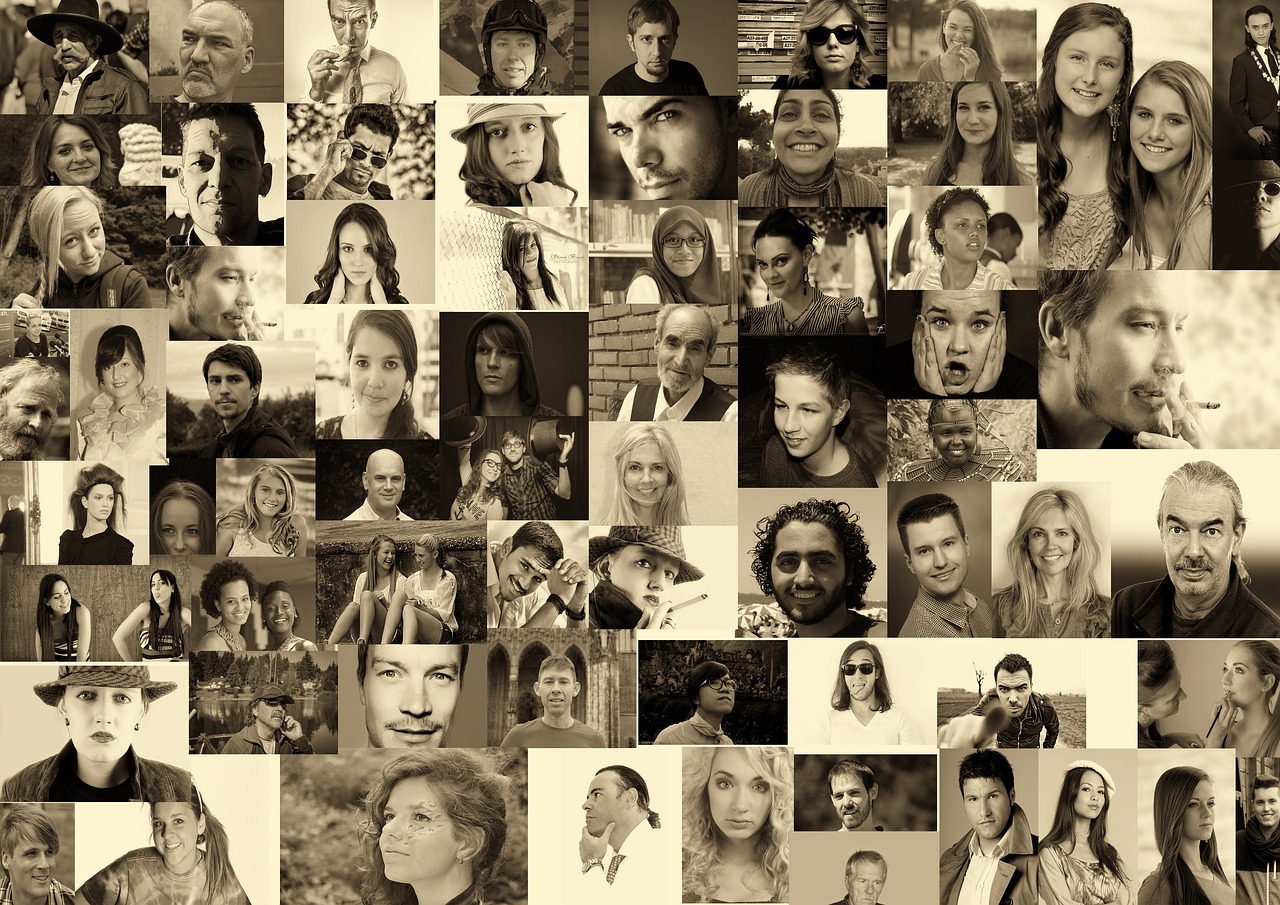
Biopower
When we dive into Michel Foucault's concept of , we enter a fascinating realm where the state and its institutions exert control over the very essence of human life. Biopower isn't just about governance in the traditional sense; it's about how power operates at the level of populations, managing aspects such as health, sexuality, and reproduction. Think of it as a subtle yet pervasive force that shapes our existence, much like the air we breathe—it's all around us, yet often goes unnoticed.
Foucault argues that biopower emerged in the 18th century, coinciding with the rise of modern nation-states. This was a time when rulers shifted their focus from sovereign power, which was primarily about taking life and death, to a more insidious form of control that sought to optimize and manage life itself. The state began to see its citizens not merely as subjects to be ruled but as living beings whose health, productivity, and very existence needed to be regulated. This shift is crucial in understanding how contemporary societies operate.
To illustrate this further, consider the following key aspects of biopower:
- Regulation of Health: Governments implement health policies, vaccination programs, and public health campaigns that dictate how individuals should live, eat, and take care of themselves. This is not merely for individual benefit but also for the productivity and efficiency of the state as a whole.
- Surveillance: Biopower is closely tied to surveillance mechanisms. From public health data to social media monitoring, the state keeps a watchful eye on its citizens, ensuring compliance with norms and regulations.
- Normalization: Through various societal institutions, such as schools and hospitals, norms are established about what constitutes a healthy or acceptable life. Those who deviate from these norms may find themselves marginalized or subject to corrective measures.
Foucault's analysis of biopower challenges us to reconsider our understanding of freedom and autonomy. Are we truly free if our choices are heavily influenced by societal norms and state regulations? This question becomes even more pressing in today's world, where issues like genetic engineering, reproductive rights, and healthcare access are at the forefront of public debate. Biopower, therefore, is not a relic of the past; it is a living concept that continues to shape our lives in profound ways.
In summary, Foucault's concept of biopower invites us to reflect on the intricate ways in which power operates in our lives, often in ways that are invisible yet deeply impactful. It compels us to question the structures that govern our existence and to recognize that the management of life is as much a part of power dynamics as outright coercion. Understanding biopower is essential for anyone seeking to grasp the complexities of modern governance and social control.
- What is biopower? Biopower is a term coined by Michel Foucault that refers to the regulation of populations by states through various means, including health policies, surveillance, and normalization of behaviors.
- How does biopower differ from traditional power? Traditional power often focuses on sovereignty and control over life and death, while biopower is concerned with managing and optimizing life itself.
- Why is biopower relevant today? Biopower remains relevant as it influences contemporary discussions around health, reproduction, and the role of the state in individual lives, especially in the context of public health crises.

Discourse and Subjectivity
When we talk about discourse, we're diving into a realm that goes beyond mere words and sentences. Discourse, in the context of Michel Foucault's philosophy, refers to the structures of knowledge and language that shape our understanding of reality. It’s like the invisible web that connects our thoughts, beliefs, and actions, influencing how we see ourselves and the world around us. Foucault posited that discourse is not just about communication; it’s a powerful tool that constructs our subjectivity, or how we perceive our identities and roles in society.
Imagine you’re in a crowded room, and everyone is talking about the latest trends in fashion. The way they discuss what’s “in” or “out” isn’t just casual chatter; it reflects deeper societal norms and values. This is where Foucault’s idea of discourse comes into play—it's not just about what is said, but how it shapes our understanding of who we are. The narratives we encounter in our daily lives, whether through media, education, or social interactions, create frameworks that guide our thoughts and behaviors. In essence, discourse molds our identities, often without us even realizing it.
Foucault believed that the power of discourse lies in its ability to define what is considered normal or deviant. For instance, consider the discourse surrounding mental health. In different eras, the language used to describe mental illness has shifted dramatically—from viewing it as a moral failing to understanding it as a complex interplay of biological, psychological, and social factors. This shift in discourse not only reflects changes in societal attitudes but also affects how individuals identify themselves and seek help.
Furthermore, Foucault’s analysis of discourse reveals that it is deeply intertwined with power dynamics. The voices that dominate discourse are often those in positions of authority, shaping narratives that can marginalize or silence others. This leads us to question: who gets to speak, and whose voices are excluded? By critically examining the discourses that permeate our lives, we can uncover the underlying power structures that influence our perceptions and experiences.
To illustrate this concept, let’s consider a simple table that summarizes how different discourses can shape subjectivity:
| Discourse Type | Impact on Subjectivity |
|---|---|
| Medical Discourse | Frames health and illness, influencing how individuals perceive their bodies and seek treatment. |
| Educational Discourse | Shapes notions of intelligence and success, affecting self-esteem and aspirations. |
| Political Discourse | Defines citizenship and belonging, impacting how individuals engage with society and governance. |
In conclusion, Foucault’s exploration of discourse and subjectivity invites us to reflect on the narratives that shape our lives. By recognizing the profound influence of discourse, we can begin to question and challenge the structures that dictate our identities. It’s a call to become more aware of the language we encounter, the stories we tell, and the power dynamics at play. After all, understanding the relationship between discourse and subjectivity is not just an academic exercise; it’s a pathway to personal and societal transformation.
- What is discourse according to Foucault? Discourse is the framework of knowledge and language that shapes our understanding of reality and constructs our identities.
- How does discourse affect subjectivity? Discourse influences how we perceive ourselves and our roles in society, often guiding our thoughts and behaviors without our conscious awareness.
- Why is it important to analyze discourse? Analyzing discourse allows us to uncover underlying power structures and challenge the narratives that may marginalize certain voices.

Historical Context of Foucault's Work
Understanding Michel Foucault requires delving into the historical backdrop against which he developed his revolutionary ideas. Born in 1926 in Poitiers, France, Foucault's intellectual journey was profoundly shaped by the tumultuous events of the 20th century. The aftermath of World War II, the rise of existentialism, and the emergence of structuralism played pivotal roles in shaping his thoughts and writings. Foucault was not merely a philosopher; he was a keen observer of the socio-political dynamics that governed his time. His work is often seen as a response to the crises of modernity, where traditional structures of power and knowledge were being questioned and redefined.
One cannot overlook the impact of the 1960s, a decade marked by social upheaval and revolutionary ideas. Foucault was deeply influenced by the wave of protests and movements that challenged established norms. The civil rights movement, feminist movements, and anti-colonial struggles all contributed to a rich tapestry of thought that informed his theories. Foucault’s philosophy emerged as a critique of the existing power structures, urging individuals to question the status quo. He believed that knowledge is not merely an objective truth but is intertwined with power, shaping our understanding of reality.
Foucault's work also reflects the influence of structuralism, a movement that sought to analyze cultural phenomena through underlying structures. This approach resonated with Foucault, particularly in his examination of language and social systems. He argued that language is not just a tool for communication but a means of shaping our perceptions and identities. Foucault’s engagement with structuralism allowed him to explore how societal norms and institutions govern individual behavior, leading to his concept of disciplinary power.
Moreover, the rise of postmodernism in the latter half of the 20th century provided a fertile ground for Foucault's ideas. Postmodern thinkers questioned grand narratives and universal truths, aligning closely with Foucault’s skepticism towards established ideologies. He challenged the notion of a singular historical truth, advocating for a more fragmented understanding of history that accounts for diverse perspectives. This led him to explore the complexities of subjectivity and how individuals construct their identities within societal frameworks.
In summary, the historical context of Foucault's work is a rich interplay of various intellectual movements and socio-political events. His philosophy emerged as a profound critique of power, knowledge, and social structures, shaped by the world around him. Foucault's legacy continues to inspire contemporary thought, urging us to reflect on the intricate connections between history and philosophy.
- What were the main influences on Michel Foucault's work?
Foucault was influenced by existentialism, structuralism, and the socio-political movements of the 20th century, particularly during the 1960s. - How did Foucault's ideas challenge traditional views of history?
Foucault argued that history is not a linear narrative but a complex interplay of power and knowledge, questioning the notion of a singular historical truth. - What is the significance of Foucault's concept of disciplinary power?
Disciplinary power refers to the ways in which societal norms and institutions regulate individual behavior, shaping our identities and perceptions.

The Influence of Structuralism
When we talk about Michel Foucault, we can't ignore the profound impact of structuralism on his work. Structuralism, a movement that emerged in the mid-20th century, emphasized the underlying structures that shape human culture and thought. It was like a lens through which Foucault viewed the world, allowing him to dissect the complexities of language, culture, and social systems. Imagine trying to understand a vast, intricate tapestry; structuralism helps us see the threads that weave it all together.
At its core, structuralism posits that meaning is not inherent but constructed through relationships within a system. For Foucault, this idea resonated deeply, particularly in how he approached knowledge and power. He argued that knowledge is not merely a collection of facts but is intertwined with power dynamics that shape societal norms and individual behaviors. This perspective was revolutionary, as it challenged the traditional views of knowledge as something objective and separate from the influences of power.
Foucault's engagement with structuralism can be seen in his analysis of institutions, such as prisons and asylums, where he explored how societal structures dictate individual experiences. He examined how language and discourse serve as tools for constructing social realities, highlighting the importance of context in shaping our understanding of various phenomena. In this way, structuralism provided Foucault with a framework to analyze how systems of thought are interrelated and how they influence human behavior.
Moreover, Foucault's critique of structuralism also played a significant role in his development as a thinker. While he appreciated the insights offered by the structuralist approach, he also felt that it was too rigid and deterministic. He argued that individuals are not merely products of their social structures; rather, they possess agency and the ability to resist and redefine those structures. This tension between structure and agency is a recurring theme in Foucault's work and is essential for understanding his philosophical evolution.
In conclusion, the influence of structuralism on Foucault's thought is undeniable. It provided him with the tools to dissect the intricate relationships between language, power, and social systems. However, it also spurred him to develop a more nuanced understanding of the interplay between structure and individual agency. This dynamic relationship ultimately enriched his contributions to philosophy and history, making his work a cornerstone of contemporary thought.
- What is structuralism? Structuralism is a theoretical framework that emphasizes the underlying structures that shape culture and thought, focusing on the relationships within a system rather than individual elements.
- How did structuralism influence Foucault's work? Structuralism influenced Foucault by providing him with a lens to analyze the connections between knowledge, power, and social institutions, allowing him to challenge traditional views of knowledge and authority.
- What is the relationship between power and knowledge in Foucault's philosophy? Foucault argued that power and knowledge are intertwined, meaning that what we consider knowledge is often shaped by power dynamics within society.

Postmodernism and Foucault
When we dive into the intriguing world of Michel Foucault, we inevitably encounter the complex relationship he had with postmodernism. At first glance, Foucault’s ideas seem to resonate with the core tenets of postmodern thought, especially when it comes to questioning established narratives and embracing the fluidity of truth. But is he a postmodernist in the traditional sense? That's a question worth exploring.
Foucault's work fundamentally challenges the grand narratives that have dominated Western thought. He believed that these overarching stories—whether they pertain to history, science, or morality—often serve to legitimize power structures. In his view, knowledge is not just a tool for understanding the world, but a mechanism through which power is exercised. This perspective aligns closely with postmodernism’s skepticism towards universal truths and its emphasis on the subjective nature of reality.
One of the most significant contributions Foucault made to postmodern thought is his idea of genealogy. Unlike traditional historical analysis, which seeks to establish linear narratives of progress, genealogy examines the origins of our beliefs and practices, revealing their contingent and often arbitrary nature. By employing this method, Foucault exposes how historical events and social constructs shape our understanding of concepts like madness, sexuality, and punishment.
However, while Foucault shares common ground with postmodernists, he also diverges in important ways. Postmodernism often embraces a certain level of nihilism, suggesting that all truths are equally valid and that meaning is entirely subjective. Foucault, on the other hand, does not reject the possibility of truth; rather, he emphasizes that our understanding of truth is shaped by the power relations within society. This nuanced position allows him to critique how knowledge is produced without falling into the trap of total relativism.
To illustrate this relationship further, consider the following table that summarizes key differences and similarities between Foucault and traditional postmodernist thought:
| Aspect | Foucault | Postmodernism |
|---|---|---|
| View on Truth | Truth is shaped by power relations | All truths are equally valid |
| Historical Analysis | Genealogy; focuses on origins | Rejects linear narratives |
| Attitude towards Knowledge | Knowledge is a tool of power | Knowledge is subjective and fluid |
| Ethical Implications | Calls for critique of power | Often leads to nihilism |
Foucault’s relationship with postmodernism is a dance of sorts—sometimes in step, sometimes out of sync. He critiques the very foundations of modernity while also providing a framework for understanding the complexities of contemporary society. His work invites us to question not just what we know, but how we came to know it, urging us to remain vigilant in our examination of the power dynamics that shape our realities.
In conclusion, while Foucault's ideas are deeply intertwined with postmodern thought, they also carve out a unique space that challenges the status quo without succumbing to the pitfalls of total skepticism. His legacy is not just in the ideas he presented, but in the way he encourages us to think critically about the world around us, making him a pivotal figure in both philosophy and history.
- What is Foucault's view on power? Foucault believes that power is not just held by institutions but is dispersed throughout society and is exercised through various forms of knowledge.
- How does Foucault define discourse? Discourse refers to the ways in which knowledge and power are intertwined, shaping our understanding of reality and identity.
- Is Foucault considered a postmodernist? While he shares some ideas with postmodernism, Foucault's approach is unique and does not fully align with traditional postmodern thought.
Frequently Asked Questions
- Who was Michel Foucault?
Michel Foucault was a French philosopher and historian, known for his influential ideas on power, knowledge, and social structures. His work has significantly shaped contemporary thought in various fields, including sociology, cultural studies, and critical theory.
- What are Foucault's key philosophical concepts?
Foucault's key concepts include power, knowledge, and discourse. He argued that power is not just held by institutions but is dispersed throughout society, influencing how knowledge is constructed and how individuals perceive their identities and realities.
- How does Foucault define power?
Foucault defines power as a complex network of relationships rather than a commodity owned by a specific group. He believes that power is everywhere and operates through various societal norms and institutions, shaping our behavior and understanding of authority.
- What is disciplinary power?
Disciplinary power refers to a form of power that regulates individuals through societal norms and institutions, such as schools, prisons, and hospitals. Foucault argued that this type of power shapes behavior and enforces conformity within society.
- What is biopower?
Biopower is a concept introduced by Foucault to describe how states regulate populations through various means, including health, sexuality, and reproduction. It highlights the ways in which power operates at the level of life itself, influencing how individuals live and interact.
- How does discourse shape subjectivity?
Foucault posits that discourse plays a crucial role in constructing subjectivity by shaping how we understand ourselves and our place in the world. Language, according to Foucault, is not just a tool for communication but also a medium through which power and knowledge are expressed and enforced.
- What influence did structuralism have on Foucault's work?
Structuralism significantly impacted Foucault's thought, particularly in his analysis of language and culture. He adopted structuralist ideas to examine how social systems and institutions operate, but he also diverged from structuralism by emphasizing the historical and contingent nature of knowledge and power.
- How does Foucault relate to postmodernism?
Foucault is often associated with postmodernism due to his critiques of grand narratives and his focus on the fragmented nature of knowledge and identity. However, he also challenges some postmodern ideas by emphasizing the importance of historical context in understanding power dynamics.


